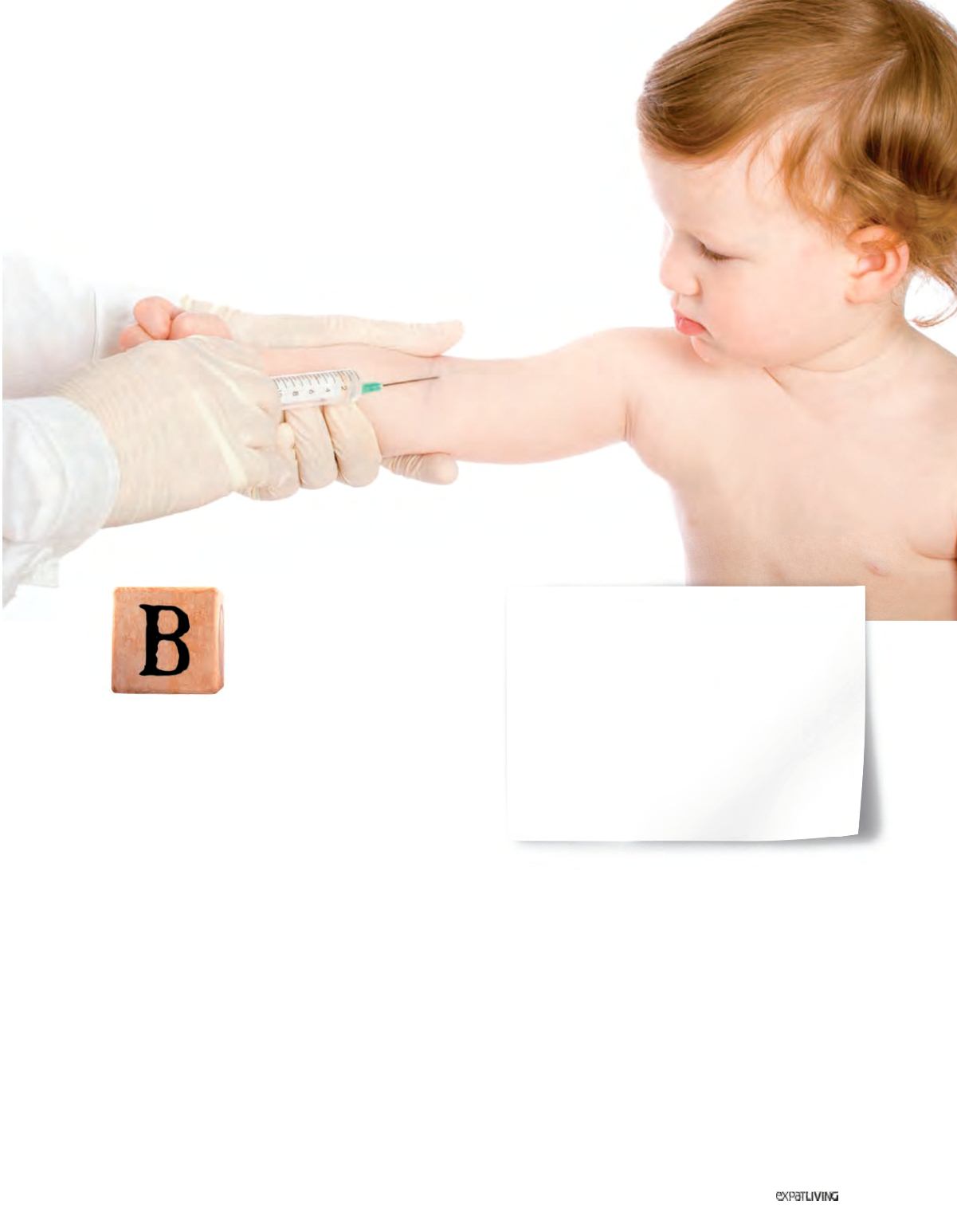

FAMILY HEALTH
295
October14
Blood tests may be required for all
manner of ailments. While no one
particularly enjoys the experience,
for a child – especially a sick child – the idea of
drawing of blood via a sharp needle, not to mention
the associated pain, can be frankly terrifying.
According to DR GARY KEONG KEAN SENG of Nichii
International Clinic, one of the commonest reasons for doing
a blood test is to assess the cause and severity of an infection
in a child with fever. Occasionally, a test for electrolytes like
sodium can help assess the severity of dehydration in a child
with a diarrhoeal illness.
Nichii International Clinic has its own in-house phlebotomy
(blood-taking) service, with doctors and nurses trained to
take blood on the premises. For a harried parent with a sick
child, not having to make the trip to the separate clinic or lab
is a boon.
The doctor agrees that it is always a challenge to obtain
a blood sample from a child. “Not only is the child afraid of
pain from the needle prick,” he explains, “but an unfamiliar
environment – particularly if it’s the child’s first visit to the
clinic – is enough to cause significant anxiety and distress.”
“It’s helpful to first establish rapport with the child and to
communicate in a calm and gentle manner,” says Dr Keong.
“In the case of an older child, an explanation of the procedure
and the reassurance of minimal discomfort is important to
IS FOR
BLOOD
Scared of the needle?
Six ways to help your child get through it:
• Tell the truth, but keep it simple.
• Don’t tell them too far in advance.
• Explain that it will help him or her get better.
• Use your iPad, a favourite story or a song to distract
from the imminent prick.
• A hysterical child may be best left in the medical
team’s care. Step outside, or withdraw to a corner
while maintaining eye contact.
• Comfort and give your child a treat, be it a lollipop
or the promise of a favourite toy or activity.
allay any fears.” A more anxious child may also benefit from
the application of a local anaesthetic cream, typically applied
20 minutes before blood-taking.
Does the relatively smaller size of a child’s blood vessels
present a challenge? “Yes,” he replies. “Hence the need for
medical personnel like ours who are experienced with little
ones.”
“It’s both satisfying and rewarding to treat ill children, restore
their health and see them laugh and play again,” says Dr
Keong. “Another important part of our job is to manage their
parents’ concerns and expectations, and to restore calm and
order to what can often be a stressful situation.”
Nichii International Clinic
350 Orchard Road
#10-00 Shaw House
6511 9300 | nichii-icl.com.sg



















